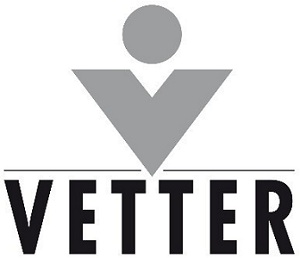APAC’s relevance to a company as big as Vetter, a world leader in Contract Development & Manufacturing, has been significant, more so in recent years due to China’s strong footprint in the region. To dig in more on what lies ahead of this pharmaceutical giant, we recently had a tête-à-tête with Oskar Gold, Senior Vice President for the Asia Pacific & Global Emerging Markets, who is optimistic about the road ahead of them in the region.
Why is APAC of such importance to the pharmaceutical industry?
The APAC markets are developing rapidly and demonstrating incredible market growth. Along with that growth its importance to the international marketplace also increases incrementally. This evolution can easily be seen in the prioritization of pharmaceutical markets worldwide. After the US and Europe, Japan and China are considered the most important markets in the global healthcare environment.
In addition to pharmaceuticals, there is also enormous potential in the Asian market for biologics. China, for example, is the APAC country with the highest number of clinical trials by far with 5.3% of all worldwide clinical trials taking place in this country alone.
What factors should be considered when a fill and finish CDMO is contemplating the creation of a local presence?
Vetter is evaluating established markets and countries on a continuous basis and new markets are analyzed regarding their potential. It is necessary to know a market before entering it. Key questions in regards to the healthcare system and the pharmaceutical and biotech infrastructure need to be answered. Additionally, topics such as digitization, implementation of quality standards, a market’s ability to innovate and a fundamental willingness to invest are also important considerations.
The APAC life sciences sector is currently riding a wave of huge investments, especially in biopharmaceuticals. This creates a wealth of opportunities. We believe that true potential of these opportunities is best realized by having a strong local presence. For Vetter, it was decided as far back as 2015 that we would take advantage of the possibilities presented by the APAC region through strategic actions. With the establishment of sales offices in key locations, we will be able to build up networks and strengthen our position within these markets.
Why is a new office in China vital to Vetter’s strategic approach to the APAC region?
When it comes to Asia, China, in particular, plays an increasingly important role in our business evolution. That is because China has one of the highest sales growth rates in the world. Furthermore, China’s economy is the second largest in the world in terms of gross domestic product (GDP) and is also the world’s second largest pharmaceutical market. This is reinforced by the fact that four pharmaceutical companies were among the international Top 50 in 2020. Given China’s enormous development, the opening of our office in Shanghai was a key step within our APAC approach.
What other factors distinguish the market in China? What are the greatest challenges to overcome in establishing Vetter in the China market?
A great deal of business development is occurring throughout Asia. Scientists from all over the world, for example, are going to China specifically to bring their experience and help shape the life sciences sector. At the same time, the Chinese government is in the process of building a more modern healthcare system to meet the needs of the world’s most populous country, currently with approximately 1.4 billion people. Nevertheless, despite the fact that the last 20 years has shown incredible growth in the Chinese market, doing business in China is not as easy as one might think. There are many issues that have to be considered to gain access to this market. For example, the issue of differences in culture and language, pharmaceutical regulation, logistics, as well as the occasional lack of mature and experienced customers in the rapidly developing injectable and biological arena must be taken into consideration. Additionally, implementing business ideas happens much more quickly in China than what we are normally used to. Therefore, it is important to have clearly defined and solid processes, very similar to those we have at Vetter. The bottom line is that we need to create transparency and mutual understanding. When we succeed on this level, we have an excellent chance of successfully developing our business in Asia Pacific.
How will customers in China benefit from working with Vetter?
The Chinese pharma market has its own laws and Vetter must, of course, adhere to them. However, we offer the Chinese pharmaceutical market the opportunity to access international markets that were previously not possible when working solely with mainly Chinese/locally focused companies. As another example, consider that the Chinese market is strongly focused on the development and production in vials. Vetter offers customers a great deal of experience in product life cycle management and numerous injection systems for their products. Thus, a wide-range of options for the Chinese pharmaceutical and biotech industry becomes available.
At the same time, the regulatory requirements must be complied with when entering the international market. These requirements differ from market to market. This is where Vetter’s international regulatory track record and extensive regulatory knowledge is decisive. For the Chinese biopharmaceutical industry our in-depth knowledge of global regulatory requirements will be of great help with the regulatory documents that are required for both clinical studies as well as marketing authorizations for registration.
Going back to the overall APAC market, what is the goal for business?
The APAC markets have great potential that we believe is best cultivated from within the region. This is achieved by having a team of experts who know the language and culture of each country. Through their efforts, we can break down ‘barriers’ and support Vetter’s overall vision to make an essential contribution through the highest quality possible and supply patients worldwide with vital drugs. We expect the Vetter APAC team will grow as needed into the future in order to meet the demand for our services in this rapidly developing region.
What opportunities do you see from the increasing importance of the APAC market?
The strategic importance of the APAC market was emphasized in 2020 through the establishment of a new Vetter Division being responsible for all current and future Vetter business in the Asia-Pacific and global emerging markets region. This year, we are putting our flag in Shanghai, China, once again establishing a local footprint and complementing our APAC business structure.
The expansion of our APAC structure and its continuous growth affords us the opportunity to deal intensively with the Asia-Pacific markets while getting to know their specialty, requirements and regulations. It also strengthens our expertise for these important markets. Just as importantly, our customers around the world can continue to benefit from this wealth of knowledge now and into the future. We are certain this initiative will reap significant rewards for Vetter and its customers moving forward.

















![Sirio Launches Global Research Institute for Longevity Studies [SIA]](https://www.worldpharmatoday.com/wp-content/uploads/2019/09/Sirio-218x150.jpg)



